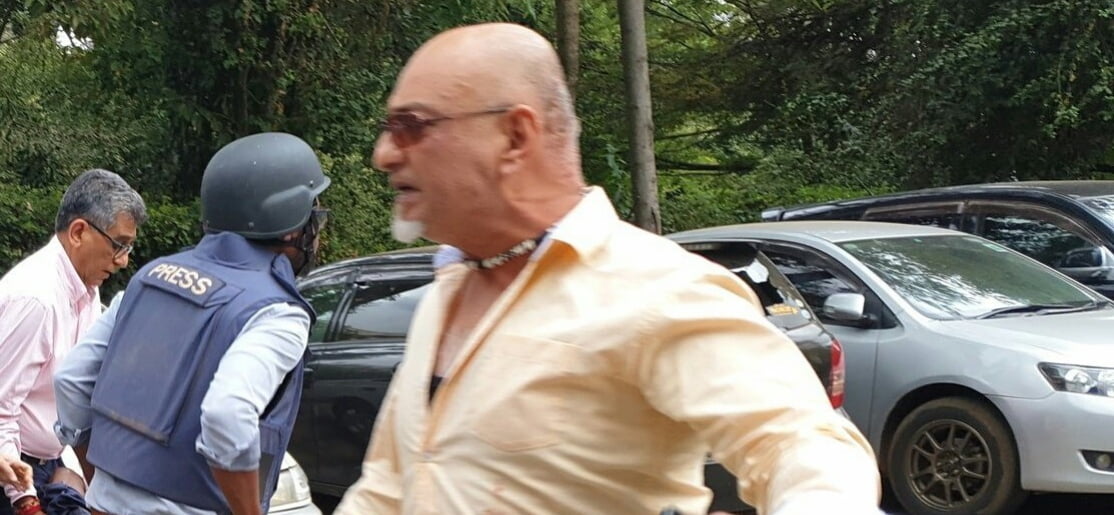The United States has warned that it could withdraw financial support for the Kenyan-led Multinational Security Support (MSS) Mission in Haiti if the United Nations Security Council rejects Washington’s proposed reforms.
The U.S. move puts both the mission and Kenya’s leadership in a difficult position. With the current funding set to expire in December, the dispute has raised fears of further instability in Haiti. President William Ruto has already warned that Kenya cannot continue without clear mandates and reliable funding.

UN Reform Dispute Puts Kenya-Led Mission at Risk
The Kenya-led Haiti mission, launched in June last year, is now at a crossroads. Washington has pushed for sweeping reforms that include renaming the mission to the Gang Suppression Force, expanding troop levels to 5,500, and creating a direct UN support force.
But the proposal requires approval from the UN Security Council, where permanent members such as China and Russia hold veto powers. If rejected, U.S. officials have made it clear that the flow of money to sustain the mission will end in December.
U.S. Charge d’Affaires in Haiti Henry Wooster was blunt about the issue. “The U.S. provision of support for the MSS and what we have been providing will expire at the end of December,” he said. The warning comes as gangs continue to tighten their grip on Port-au-Prince and other parts of Haiti.
The mission’s reliance on voluntary contributions has already crippled its effectiveness. Kenya deployed about 1,000 troops—less than half the planned number—due to funding and logistical gaps. Shortages of equipment, including armored vehicles, have allowed gangs to reclaim areas once secured by international forces.
Ruto Warns Against Underfunded Expansion
At the UN high-level meeting on Haiti on September 22, President Ruto accused global leaders of leaving Kenya to fight a losing battle. He made it clear that Kenya would only send additional forces if there was international consensus and guaranteed resources.
“If we are sending an additional team, the mandate must be clear. We must also have a predictable resource package,” Ruto said. “It cannot be what Kenya has been through, which is a game of guesswork.”
The Kenyan President disclosed that the plan to establish 12 forward operating bases was delayed due to logistical setbacks. These delays, he explained, have enabled gangs—some labeled terrorist groups by Washington—to regroup and spread.
His remarks underline growing frustration in Nairobi. Kenya has been at the forefront of the Haiti mission, but its leadership is now tied to uncertain international politics.
UN Security Council Divisions Could Derail Progress
The Security Council is deeply divided over the future of the Haiti mission. While the U.S. and some allies back reforms, China and Russia have resisted similar proposals in the past. Their opposition could doom the plan before it even reaches a vote.
The stakes are high. Without U.S. funding, the mission’s trust fund—currently standing at $113 million, with Canada the top contributor—will not sustain the expanded operations. U.S. contributions have so far been limited, at just $15 million, raising questions about Washington’s long-term commitment.
Operating costs are projected to run into hundreds of millions of dollars annually, far beyond what current donors have pledged. Without agreement on reforms, Kenya may be forced to scale back its role or even withdraw.
The dispute highlights a broader global failure. Despite months of promises, world powers have left Kenya exposed in a dangerous mission. Haiti’s gangs remain strong, civilians are trapped in daily violence, and the international community appears more focused on politics than solutions.
What the UN Reform Dispute Means for Kenya and Haiti
The looming withdrawal of U.S. funds places Kenya in a political and military dilemma. Nairobi risks being seen as leading a mission that cannot succeed without adequate backing. For Haiti, the consequences are even more severe. Without a stronger multinational force, gangs will continue to terrorize communities, making any talk of political stability meaningless.
President Ruto has made his stance clear—Kenya will not fight an endless war on guesswork. But unless the UN Security Council resolves the reform dispute, the mission could collapse by early 2026.











































